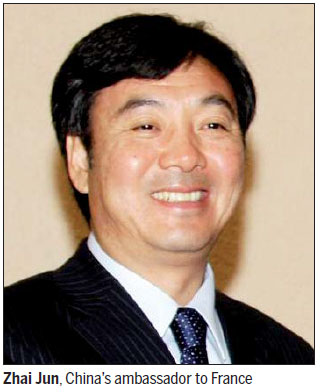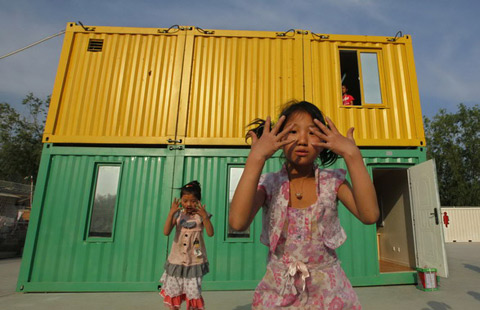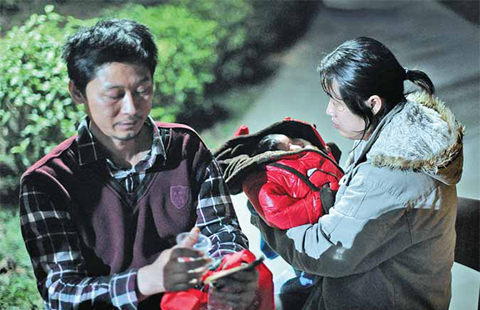New chapter in bilateral ties
Updated: 2014-03-28 08:39
By Li Xiang in Paris (China Daily Europe)
|
|||||||||||
President Xi Jinping's trip to France has allowed Beijing and Paris to take their strategic partnership to a new level, says Zhai Jun, China's ambassador to France.
"The visit allowed the top leaders from China and France to review the achievements in bilateral relations over the past 50 years and to jointly outline their vision and plan for the future," Zhai says.
During the trip, the two leaders inked several bilateral business and investment agreements, including the $1.09 billion capital tie-up deal between Chinese automaker Dongfeng Motor Corp and PSA Peugeot Citroen.

Zhai says that Beijing and Paris are strong advocates of independent diplomacy, support a multi-polar world and cultural diversity. This has helped forge a special and strategic partnership between China and France, he says.
France was the first major Western power to establish full diplomatic relations with China in 1964. It was also the first Western nation to have nuclear cooperation with China in the 1980s. In 2004, the two countries elevated their relations to a more comprehensive strategic partnership.
"Because of the special features of the Sino-French relations, both countries treat each other as priority partners," Zhai says.
"China and France shoulder a lot of international responsibilities as they are also permanent members of the Security Council of the United Nations," he says, adding that the two sides have extensive common grounds to cooperate as both of them are facing crucial reforms to transform the current growth model at home.
Commenting on Sino-French economic relations, Zhai says China and France should jointly explore new opportunities in green urban development, agricultural product processing, health, digital economy, alternative energy and sustainable development.
Xi also visited Lyon where the Sino-French Institute is located. It was the first overseas institute set up by China and has hosted nearly 500 Chinese students from 1921 to 1946. Former Chinese leaders like Zhou Enlai, Deng Xiaoping and Chen Yi were frequent visitors to Lyon, drawn to the institute to engage in discussions about political ideas and to contribute to local student movements.
According to Zhai, Beijing and Paris can also deepen their cooperation in areas like culture, science and technology and continue to strengthen communication among young people.
lixiang@chinadaily.com.cn
(China Daily European Weekly 03/28/2014 page11)
Today's Top News
Partnership with Belgium, EU highlighted
Turkish PM wins local elections
Monday's search for MH 370 resumes: AMSA
Families of flight MH370 passengers 'need closure'
Greece passes new reform bill
Dobass demonstrators demand referendum
MH370 relatives demand answers
Turkey starts local elections
Hot Topics
Lunar probe , China growth forecasts, Emission rules get tougher, China seen through 'colored lens', International board,
Editor's Picks

|

|

|

|

|

|





